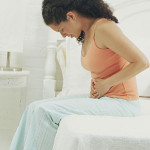Intestinal infections may be attributed to bacteria, parasites, fungus, mold or yeast present in food that one eats. The severity of the infection hinges on the pathogen that causes the infection, which is why a diagnosis is necessary. Before treatment can be prescribed, the doctor must know what sort of infection it is.
Causes
 The most frequent cause of intestinal infection is pathogens that make their way into the body via the mouth. Other causes are poor hygiene and making contact with polluted water. Once the pathogens are in the body they will irritate the digestive tract tissues, leading to soreness and inflammation.
The most frequent cause of intestinal infection is pathogens that make their way into the body via the mouth. Other causes are poor hygiene and making contact with polluted water. Once the pathogens are in the body they will irritate the digestive tract tissues, leading to soreness and inflammation.
Pathogens that result in intestinal infections usually come from a contaminated food source such as spoiled shellfish, spoiled meat and unpasteurized dairy products. Any food that has been subjected to microbial pathogens is susceptible to causing an infection.
Aside from food, contaminated water can also cause intestinal infection, so drinking from natural sources is not advised until the water has been sterilized. Swimming pools can also be a source of infection if it is not cleaned regularly.
In addition, poor hygiene, such as not washing hands after going in the restroom, also makes one vulnerable to infection. One should also be wary of touching dirty objects or making contact with food or silverware without washing hands as well.
Symptoms
Symptoms of intestinal infection depend on the severity of the condition, but one of the most common is sinus distress characterized by coughing and/or a runny nose. The condition is also marked by appetite loss as the body shuts down due to inflammation, and it may be accompanied by feelings of nausea.
As the infection worsens the person will feel abdominal pain which could be accompanied by swelling. If the infection is bacterial, cramping will be felt in the abdomen for up to five minutes at a time, and it gets worse each time. Patients afflicted with intestinal infection might also suffer from constipation as they do not eat regularly.
Irritable Bowel Syndrome might also result if parasites have gotten in the intestines and attached to the walls. As the pathogens move further in the body, diarrhea will result as the body tries to get rid of the pathogens and irritants. Consequently this will lead to dehydration and physical weakness.
Other symptoms may accompany an intestinal infection including sleep disorders caused by general discomfort, teeth grinding and headaches due to dehydration or loss of appetite, and in some cases skin rashes. Skin rashes usually occur as the infection moves all over the body.
Treatment
One should seek immediate medical attention if the symptoms are severe or accompanied by frequent vomiting, incessant diarrhea and physical weakness. A doctor should also be called if one is vomiting or excreting blood. Any sign of dehydration also warrants medical attention as it is very dangerous.
Treatment is also necessary if the symptoms endure for longer than three days with no relief or getting worse. Once the patient is at the doctor’s office, a diagnosis will be performed. Medications may be prescribed or if the infection is severe, stool samples may be required to identify the pathogens in the body.
Different treatments are available, and one of the most common is Bactrim. Aside from intestinal infection, Bactrim can also treat diarrhea and bacterial infections in the middle ear. Other medications may be prescribed by the doctor to alleviate the other symptoms such as nausea or headaches.
Since there are many kinds of intestinal infections, one should not self prescribe as it could make things worse. One should see a doctor first so the proper medication and dosage can be prescribed. Only take the medication as prescribed and do not take more than what the doctor recommended. It is also advisable to complete the treatment even if the intestinal infection symptoms seem to have disappeared. Unless the treatment is completed, the infection might come back and get worse.
Prevention
The best way to prevent intestinal infection is to practice good hygiene, and to make certain that the infection doesn’t spread. Hands should be washed regularly prior to cooking or eating and after using the restroom. Foods should also be cleaned and cooked thoroughly to ensure all microbes are removed.
Intestinal infection may also be due to poor diet. Those recovering from an intestinal infection have to adjust their diet so the body doesn’t suffer from undue stress. Patients recovering from severe cases of infection are usually put on a liquid diet to ensure they are hydrated without affecting the body’s organs.
Once the patient’s ability to eat solid foods is restored, the doctor might prescribe supplements and vitamins to help the body recover faster. During the recovery period, the patient is advised not to eat hard foods that might put undue pressure on the digestive system.
Share This